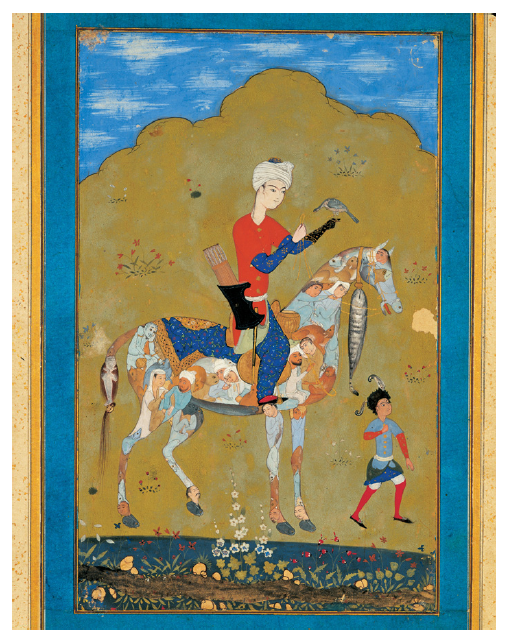Tag: Tang Center for Silk Road Studies
Conference at UC Berkeley: Ruling Together Consultation and Collaboration in the Political Regimes of Premodern Eurasia
Ruling Together: Consultation and Collaboration in the Political Regimes of Premodern Eurasia
February 16, 2024
Maude Fife Room, 315 Wheeler Hall, UC Berkeley
Organized by Tang Center for Silk Road Studies

The conference focuses on the medieval and early modern periods (1000-1700 CE) as a crucial era for cross-cultural contact, challenging the lesser emphasis this period has received within “Silk Road” scholarship. It argues that viewing Eurasia merely as a space of intermittent object and idea exchange through trade or diplomacy depoliticizes cultural and goods spread, which is inadequate for understanding the political dynamics of these centuries dominated by the Mongol Empire and its successors. Emphasizing the role of political institutions in transregional history, the conference aims to integrate the study of cross-cultural contact with political history, highlighting Central Asia’s significance in the global political history of the medieval and early modern periods.
8:30 Tea and Coffee
9:00 Welcome Remarks
Panel 1
Who Should Rule? Institutions of Sovereignty and Succession
9:15 Christopher Atwood, University of Pennsylvania
The First Interregnum: Imperial Stake Holders in a (Temporarily) Khan-less World
9:45 Michael Bechtel, Nazarbaev University
Mongol Empire 1229-46: Frameworks of Rule and Redistribution (Related article is here)
10:15 Jonathan Brack, Northwestern University
Chinggisid Family Feuds, Islamization, and the Religious Sphere in Mongol-ruled Iran
10:45 Evrim Binbaş, University of Bonn
The Theater of Constitutional Ideas: The First Timurid Civil War and Shahrukh’s Ascension to Timur’s Throne
11:15 Discussion
11:45 Lunch break
Panel 2
How to Rule? Transcontinental Institutions
1:30 Carol Fan, University of Bonn
Revenue sharing networks within the Mongol Empire and transregional contacts
across Eurasia in the 13th and 15th centuries
2:00 Paehwan Seol, Chonnam National University
The Jarghu: Mobile Courts and Justice Networks of the Mongols throughout East-
West Asia during the 13th to 14th Centuries
2:30 Natalia Królikowska, University of Warsaw
Numerous Nogay peoples, the Circassians and innumerable Tatars’ influence on the decision-making process in the Crimean khanate.
3:00 Discussion
3:30 Tea and Coffee
Panel 3
What is Ruling? Conceptualizing State and Empire
3:45 David Sneath, University of Cambridge
The Lords’ Administration: Mongolian aristocratic governance and the state as social
relation
4:15 Munkh-Erdene Lhamsüren, National University of Mongolia
The Chinggisid Sovereignty: Myth, Archetype, and Transformation (see similar article here)
4:45 Kaveh Hemmat, Benedictine University
Rule of Law in Islamicate Civic Lore Concerning the Mongol Empire and China
5:15 Discussion
Afghanistan: At the Heart of the Silk Roads Virtual Talk
Afghanistan: At the Heart of the Silk Roads
Sanjyot Mehendale, UC Berkeley
Thursday, October 21, 2021, 7 pm (ET)
A talk organized by the Dunhuang Foundation
PO Box 8309, Houston, TX 77288
Register for the virtual talk here
This talk aims to counterbalance the popularly imagined Afghanistan—filtered by the mass media through the lens of terrorism and war— as a barren and backward place. Instead, presenting a place that lies at the heart of vibrant, millennia-old regional and international trade and exchange networks, with a culture not only rich but richly diverse, not isolated and insulated but deeply and complexly engaged with other cultures near and far.

Sanjyot Mehendale received her B.A. (Art and Archaeology) from the University of Amsterdam and her M.A. (Art and Archaeology) from the Rijksuniversity of Leiden, The Netherlands. She obtained her Ph.D. (Near Eastern Studies) in 1997 from the University of California at Berkeley. Since 1997, she has been teaching Central Asian and Silk Roads art and archaeology in the Department of Near Eastern Studies at Berkeley. From 2001-2005, she was the co-director of the Uzbek-Berkeley Archaeological Mission (UBAM). During the same period, she was Executive Director of the Caucasus and Central Asia Program. Among Dr. Mehendale’s main research concerns is a focus on the Kushan period, in particular on trade and cultural exchange and the relationship between Kushan kingship and Buddhist institutions. A recipient of a National Endowment for the Humanities Fellowship, she has developed, in collaboration with the Electronic Cultural Atlas Initiative, a digital archive of the Begram ivory and bone carvings, which were once housed in the National Museum in Kabul, Afghanistan (www.ecai.org/begramweb). The author of several articles on Silk Roads art and archaeology, she is the co-editor of Central Asia and the Caucasus: Transnationalism and Diaspora (Routledge, 2005). At Berkeley, Sanjyot Mehendale is Chair of the P.Y. and Kinmay W. Tang Center for Silk Road Studies and Vice-Chair of the Center for Buddhist Studies.